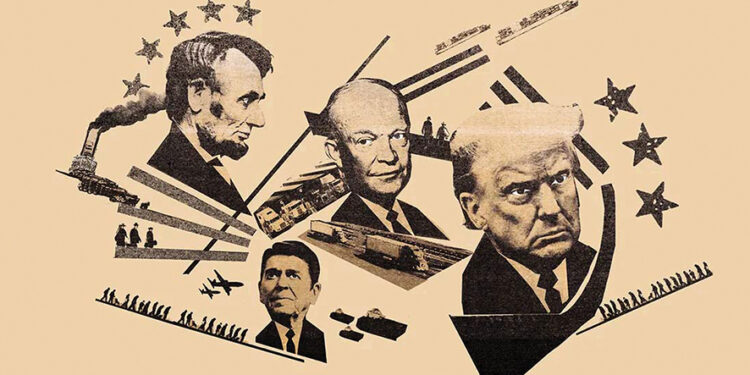There is, nowadays, a significant debate about the so-called NeoCon (neoconservative) philosophy of life and politics. Many wonder how good or bad, how strong or weak, how gentle or vicious, and how useful or damaging it might be for humanity today. By the simplest definition, a NeoCon is someone who adheres to conservative or right-wing ideology and strongly supports a free-market economy. Neocons advocate for an old-fashioned structure of societal interaction, dismissing extreme libertarianism as an impractical and unpalatable economic and ideological stance. Neoconservatism can be described as a blend of political, social, and religious conservatism, adapted to modern times.
NeoCons have played a dominant role in the global socio-political landscape over the past few decades, though their ideological roots trace back to the late 1960s. According to encyclopedic definitions, NeoCons promote the autonomous advancement of democracy and support interventionism in international relations. Their philosophy of peace through strength relies on militaristic and realist principles, staunchly opposing socialism and communism. The idea of peace through strength, which suggests that military power helps maintain peace, remains controversial, depending on how and by whom it is propagated. This ideology suggests that military power can preserve peace, a claim that draws both supporters and critics, depending on its application and leaders’ intentions.
Neoconservatism has played an essential role in determining global policies and shaping international alliances. Their crusade influences the foreign policy of numerous nations, including Sakartvelo, as well as international institutions. Neocons emphasize democratic extension, encouraging interventionism to sustain what they ponder as Western democratic standards. Their attitude has powered momentous military interventions, including in the Middle East, especially in Iraq and Afghanistan. Whereas their tactic in foreign policy repeatedly triggers criticism for being excessively bellicose, NeoCons argue that their actions are essential to maintain global stability. Opponents, however, highlight long-drawn-out conflicts and regional instability. The continuing drive for strategic geopolitical impact emphasizes the Neocons’ durable endeavor and ability to shape the world in their own way.
As far as our little Sakartvelo is concerned, geopolitically situated at the junction of East and West, it constitutes a vivid example of the effect of neoconservatism in small but strategically dynamic nations. NeoCon policies have played a noticeable role in supporting Georgia’s democratic progress, particularly in its longing to integrate into European and transatlantic alliances. Economically, neocon investments in Georgia have encouraged free-market reforms and privatization. Politically, NeoCon ideology has helped animate local elites who view Western configuration as a protection against outside threats, particularly from the North. This way or that way, criticizers contend that this alignment risks distorting Georgia’s political challenges while nurturing dependency on Western relief. And most importantly for this country, the neoconservative vision of peace often raises challenging questions. Is structural peace achievable solely through supremacy, or does it require teamwork and partnership, diplospeak, and common development efforts? The answers to these questions will shape not only the future of neoconservatism but also global stability.
How about Ukraine? The unending conflict in Ukraine has brought neoconservatism to the vanguard of worldwide discourse. Neocons have been outspoken backers for supporting Ukraine, encouraging wide-ranging military assistance and punitive sanctions against Russia. They view Ukraine as a crucial frontline for protecting democratic ideals against authoritarianism. Proponents argue that a strong, united front led by Western democracies is indispensable to ensure Ukraine’s sovereignty and stability. However, doubters suggest heads-up that disproportionate militarization of the skirmish could aggravate tensions, expand the war, or incite further geopolitical consequences.
To conclude, neoconservatism remains a powerful ideological force in shaping global and domestic policies, and Sakartvelo remains (so far) within this previously designed modus vivendi. Its focus on military strength, democracy promotion, and traditional values continues to drive debates on issues ranging from conflict resolution to societal norms. However, its complexities require a subtle understanding. While NeoCons offer a unified vision of strength and tradition, their philosophy faces growing challenges in a rapidly changing world. Political analysts, social commentators, and policymakers in Sakartvelo must critically evaluate its benefits and limitations to address modern national challenges effectively. Neoconservatism will not fade away that easily. It will stay around to evolve its impact, and this requires an educated, well-adjusted discourse to exploit its power for constructive and helpful transformation while extenuating its hazards and menaces.
Op-Ed by Nugzar B. Ruhadze














